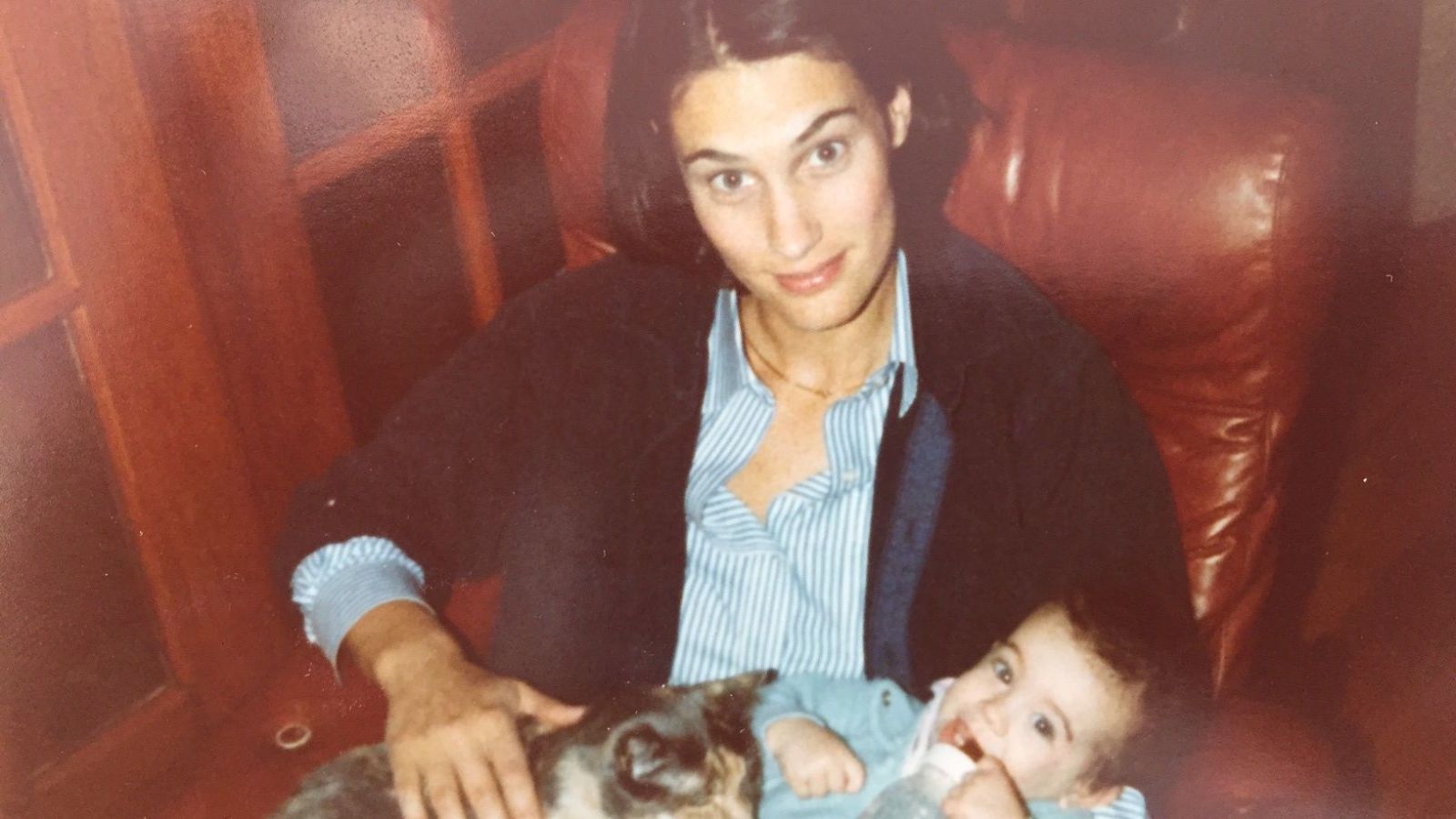Being Estranged From My Mom Is Hard. Mother’s Day Makes It Harder
It’s high time to start representing the different types of mother-daughter relationships—or lack thereof—that exist during the holiday.


I haven’t spoken to my mother in more than two years. I thought navigating Mother's Day would get easier, but as the holiday approaches on May 9, I can’t help but feel an overwhelming sense of grief. While others are happily celebrating with flowers, chocolate, and gushing greeting cards, I have to step away from my social media feeds in the name of self-care. It's the only way to avoid posts, pictures, and advertisements that perpetuate a harmful myth: that all mothers love, appreciate, respect, and adore their children, and that all children are duty bound to uphold this idea, no matter the circumstance and no matter their truth.
Mother-child relationships are far more diverse and complicated than the one-dimensional imagery we're bombarded with in the mainstream. The constant reminders of these picture-perfect maternal bonds can be brutal for those of us who haven’t had that experience. Similar arguments might be made around Father’s Day, but the discourse around Mother’s Day is uniquely overwhelming, as demonstrated by the country’s disproportionate spending on the holiday.
My relationship with my mother—when we had one—fluctuated across a spectrum that ranged from somewhat stable and manageable to dysfunctional. In therapy, I learned that my struggles, frustrations, and occasional despair were intergenerational: I didn’t need to look any further than my family tree, where foreboding and loveless women—some of whom I’ve never met but heard stories about—raised their families with massive doses of unchecked anger, manipulation, and chronic estrangement. Toxicity and chaos had narrated my family's dynamics long before I was born, and emotional dysfunction was normalized and passed down like an heirloom. In this way, I’d been the unwitting recipient of an unfortunate inheritance.
Every May, I brace myself for the inevitable feeling of my psychological progress being thwarted by the way society has chosen to honor stereotypical representations of mother-daughter relationships.
Therapy eventually taught me that the steady dose of weaponized rage, outsized expectations, unsolicited criticisms, and micromanaging that I’d internalized as "normal" had become damaging to my mental health and my other relationships, including my marriage. The dynamic between my mother and I had become unsustainable. After my final attempt to navigate her escalating behavior, I drew a hard boundary: I’m seeking help, and we are at an impasse until you do too. My expressed need for a lighter and more sustainable relationship was met with crickets, and we no longer speak. For the third year in a row, Mother’s Day will come and go in silence.
At 40 years old, I am newly acquainted with the concept of boundaries and self-care. I believe that I am, as my therapist recently put it, on the other side of grieving the sort of mother-daughter relationship I always wanted—a mutual dynamic defined by unconditional love, respect, and stability—but could never access without strings. Yet still, every May, I brace myself for the inevitable feeling of my psychological progress being thwarted by the way society has chosen to honor stereotypical representations of mother-daughter relationships.
I do not begrudge those who find joy in celebrating Mother's Day—or any other holiday. It’s lovely to see families out and about, enjoying each other (although I’d argue that it’s lovely to see this no matter the day on the calendar). But I’m forced to wonder about those for whom, like myself, the day inspires feelings of alienation, shame, sadness, and grief over what isn’t. This struggle of estrangement, for many, is often a life sentence—no matter how much therapy (a privilege in itself) is involved.
According to a 2015 study of estrangement between mothers and adult children, more than 40 percent of participants experienced parental estrangement at some point or another. Another study finds that parental estrangement is a phenomenon nearly as common as divorce, one we're continuing to learn more about. When the statistics are what they are, why do brands insist on misrepresenting—or worse, gaslighting—consumers during these holidays?
Get exclusive access to fashion and beauty trends, hot-off-the-press celebrity news, and more.
"The fetishization of the 'perfect family' has long been a focus of marketers, advertisers, and the ‘brand’ of motherhood," explains clinical psychologist and bestselling author Dr. Ramani Durvasula. "There are many different models of maternal caregiving—LGBTQ+ families, multi-generational families, foster families—and this is rarely depicted, which can also contribute to a marginalization of non-traditional maternal models and a sense of disconnect for those who may not [experience] what is portrayed as the 'norm.'"
Simply acknowledging that others are experiencing estrangement or other kinds of loss on this day can go a long way.
Avoiding social media, commercials, and the greeting card aisle during this time does nothing to help manage the feelings that emerge for those of us who can't easily accept calls to "celebrate mom!," as society suggests. It’s time to showcase the mother-daughter relationships we don’t see in those advertisements or greeting cards—the ones that are hiding in the shadows of shame and stigma.
Recently, I found myself perusing a Reddit forum devoted to the lives and experiences of adult children living in estrangement from their parents. A user posted a comment about how hard it was to avoid the hype around Mother’s Day, and they included a screenshot of an email sent by a company that had taken steps to honor their consumers' circumstances, whatever they may be. The email contained an opt-out button and said, "Mother’s Day is approaching and we know this can be a sensitive time for some. If you would prefer not to receive any emails about this event, please let us know by clicking below by the 4th of March. But don’t worry, you will continue to receive our normal emails."
"I wish all companies would do this," the post’s author concluded. I have to say that I agree. Simply acknowledging that others are experiencing estrangement or loss on this day can go a long way, and hopefully this will work towards eliminating the notion that a greeting card or a gift is necessary to begin with.
While I don't know what the future for my mother and I will look like, I do know that normalizing the reality that mother-child relationships are far more diverse, complicated, and messy than we’re led to believe would be a step in the right direction. Such efforts could even help alleviate the pain for mothers—not just adult children—trying to protect their inner peace, rather than the constant reminders of what could have been.
RELATED STORY

Christina Wyman is a teacher and writer. Her work has appeared in ELLE Magazine, Ms. Magazine, The Washington Post, and other outlets. Her first book is under contract with Farrar, Straus and Giroux and she can be found on Twitter.
